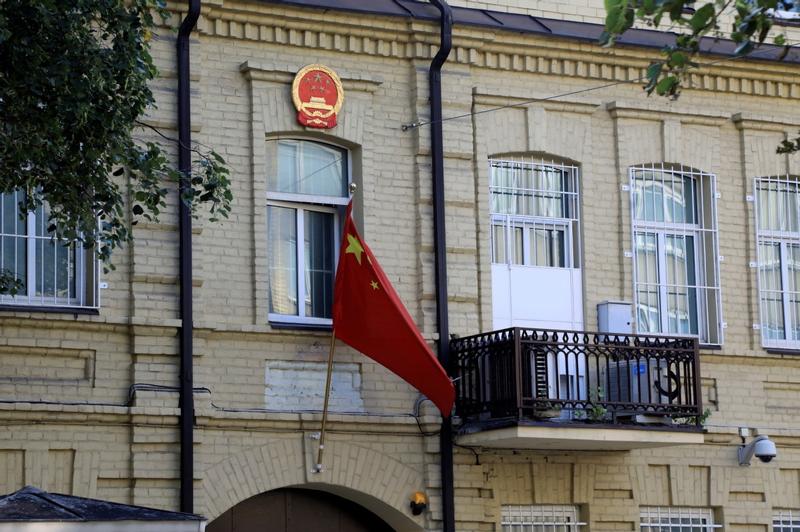 China's national flag hangs on the facade of the Chinese Embassy building in Vilnius, Lithuania, 23 July 2021. (PHOTO / IC)
China's national flag hangs on the facade of the Chinese Embassy building in Vilnius, Lithuania, 23 July 2021. (PHOTO / IC)
That Lithuania has denied online posts that it would provide a special immigration pathway to Hong Kong residents regardless of what kind of passport they have or what their visa status is comes as no surprise. No country that has the basic understanding about international norms or cares about its bilateral relations with China would have taken that foolish step.
Yet the speculation online as to how far Lithuania might go in terms of its relations with China has not come out of nowhere. A group of Lithuanian lawmakers mainly from the opposition parties have reportedly proposed granting asylum to "Hong Kong people who might face persecution and repression from China", although this signals their support for the radicals that are now paying the price for breaking the law with the special administrative region enforcing its new national security law.
Further fueling the rumor is the pathetic state the Sino-Lithuanian relationship has found itself in thanks to the Baltic country's recent move to challenge the one-China policy. Its decision last month to allow the Taiwan authorities to open a "representative office" in Lithuania under the name of "Taiwan" led to its ties with Beijing hitting new lows, as Beijing believes the move sends the wrong signal to the independence forces on the island.
In protest Beijing recalled its ambassador to Vilnius, and demanded that Lithuania recall its own envoy from Beijing.
Under such circumstances, any more diplomatic misjudgment or misstep on the part of Lithuania risks derailing the already badly hurt bilateral relations, and causing far-reaching political and economic consequences.
What has caused Vilnius to adopt an increasingly hostile policy toward China may be open for discussion. Yet there are reports that Lithuania hopes its tough stance against China may get noticed in Washington, something that it desperately wants. The United States-led military alliance, NATO, is said to enjoy unwavering support in Lithuania mainly because of the Baltic country's growing security concerns in the wake of the conflict in Ukraine in 2014.
Now that the US administration has drafted a global strategy to contain China, toeing the lines of the world's sole superpower on such fronts as Taiwan, Hong Kong or the Belt and Road Initiative seems a natural choice for politicians in Vilnius. After the diplomatic row between Beijing and Vilnius, Washington "underscored ironclad US solidarity with our NATO ally and EU partner Lithuania in the face of China's coercive behavior".
Also, Lithuania withdrew from the 17+1 cooperation platform between China and Central and Eastern European countries in May, and it has urged other member states to follow suit. History shows that small states easily fall victim to geopolitical games, especially when they align themselves with major powers and try to punch above their political weight by accepting the role of a pawn. It is a mistake that Lithuania should avoid committing.


